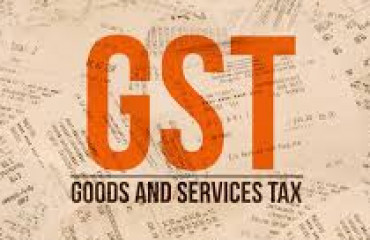
The Supreme Court, while dealing with a case of the levy of Goods & Service Tax (GST) on ocean freight, delivered an important ruling last week covering the scope, power and limitations of the GST Council.
The Supreme Court, while dealing with a case of the levy of Goods & Service Tax (GST) on ocean freight, delivered an important ruling last week covering the scope, power and limitations of the GST Council. The GST Council is a Constitutional body tasked with providing advice and recommendations on matters of GST. India's apex court has held that the GST Council's suggestions are mere recommendations and have only persuasive value.
The GST regime was designed to subsume existing indirect taxes on manufacturing, the provision of services, sale of goods, state entry, etc, under a single taxable event: the supply of goods or services. The system has continued to evolve on several fronts since its implementation on 1 July 2017. It has undergone rate rationalization and several changes on exemptions, procedures and so on.
As GST subsumed all applicable indirect taxes in every state, a GST Council was constituted to provide a level playing field between states and the Centre. This council was expected to offset any inclination of either the Centre or states to dominate the other, and also to help resolve conflicts on the basis of consensus. Statutorily, of the total votes cast, the Centre holds one-third while states hold the rest, with no compulsion for the Council to provide 'unanimous' recommendations. However, those present and voting must have a three-fourths majority to provide a recommendation.
Cooperative federalism: The GST regime clearly defines the functions of the GST Council, Centre and the states. India follows a model of cooperative federalism, in which the Centre and state governments partner to resolve conflicts. In the instant case, the apex court examined the Constitutional architecture and framework, and alluded to "cooperative" and "fiscal" federalism. The verdict serves as a reminder to the Union government that GST legislation is the combined responsibility of the states and Centre. The Council's recommendations are not binding because both have equal authority to legislate on GST. The Centre should not legislate unilaterally, as it would contradict the idea of 'cooperative federalism'. To treat them as enforceable edicts would jeopardize fiscal federalism, as committed to by the Union and states. The assumption that the council's recommendations morph into legislation under Article 246A is implausible.
Both the Centre and states have entrusted the council with binding advisory powers. India has a multi-party system, in which the ruling party may or may not govern many states. Thus, there is a high probability of disagreement. While the idea of uniform taxation could fall apart in the absence of consistency among states, the council can only operate in the manner prescribed in the Constitution with support of the Centre and states. The apex court clarified that the council's Constitutional position and powers must be read in the light of the legislative authority granted by Parliament and state legislatures, wherein both the Centre and states have equal powers to legislate on GST and are required to carefully examine the consequences and benefits before enacting any amendments or adjustments. It is clear that the council's proposals must be the outcome of a collaborative dialogue among them.
The Supreme Court also observed that the GST Council, being a delegated authority, must strictly act within the limits of the authority granted to it under the GST Act. The concept of implied intent or incidental and ancillary power will not be appropriate in the exercise of fiscal power, since it impacts numerous taxpayers.
Absence of binding nature: The apex court noted that the Constitution would've had an express provision if the council was intended to be a body whose recommendations translate into legislation without any intervening act. It clarified that although the government is bound by the council's recommendations while exercising its rule-making power under the GST Acts, not all its recommendations would be regarded as legislation.
Impact on the future of GST legislation: The judiciary may have to be more proactive in its evaluation of GST legislation, which may lead to a deluge of lawsuits challenging GST Council decisions. This could also have far-reaching repercussions on a variety of issues, including instances of states disagreeing with council decisions, particularly now that the centrally-committed GST compensation is coming to an end. While no state has exercised its power to reject council recommendation in the past five years, increasing political polarization may throw up a conflict that challenges the one-nation-one-tax principle. There is a high probability that the GST Council will be forced to create a dispute resolution system to deal with possible GST conflicts between the Centre and state governments. As a council recommendation would be non-binding for primary legislation, the possibility of some states failing to amend or enact the same cannot be ruled out. It may disturb tax harmony and may partially lead to the operation of different provisions in different states, or see conflicts between state and central GST laws. It could impact taxpayers operating in multiple states. This is why the apex court has clearly stated that both the Centre as well as state legislative assemblies have the power to draft their respective resolutions and they should do it after detailed study, due consultations and negotiations.
One should hope that both the Centre and states follow the advice of the apex court to ensure that the business of taxpayers working in multiple states is not impacted.
